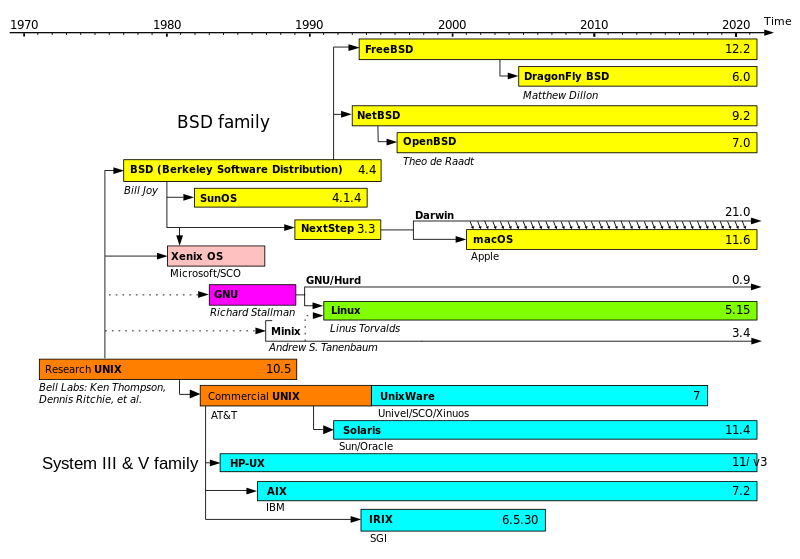

But the act to put him on prison is a way to request the access for no longer asking. Depends on how much Pavel Durov can handle this torture.


But the act to put him on prison is a way to request the access for no longer asking. Depends on how much Pavel Durov can handle this torture.
hetzner.com is cheaper, I think.
There is a way, it’s called SSH over HTTP, I think there are many guides on the internet. I hope this works.
EDIT: I don’t know how to do that on Windows or if it’s possible but maybe with a virtual machine… sorry.


Summary: France “requesting” Telegram keys.
Well, Linux is already on the desktop. I don’t know what the blog mean.
About Wayland, it still need time even if people says it’s ready and blabla, I even had issues with Flatpak+Wayland so… keep on X11 to make sure all works.
Is it still cheap, or they increase the price like x2? Can you tell us what company did you used, please? Thanks!
Well, fuck the executives…


You are just talking like mad, being rude. I never said there is a cure. LMAO I suppose you really have an issue to enjoy your life, I’m sorry…


Nope, just saying other people has less, and they can be as happy as anyone. What I want to say is that most of the depressions is mental, happiness is proven than it’s 45% genetics or like that, I don’t remember now, but the difference between someone happy and someone who gets depressed often are mostly the genetics.
So what I am saying is, there are people that has less than you, and they have fun and are happy.
EDIT:
Telling me I’m not allowed to feel sad etc because others have it worse?
Never said that, but go angry mode. Go. I said we need to deal with our sadness.


the art of doing nothing: https://redirect.invidious.io/watch?v=8An2SxNFvmU


You can remove that, if you are good with Windows you can clean up that pretty much. The problem with Apple is their UI bugged, stupid bugs and lack of decent UI like grid Windows and more features that just Windows has by default, and KDE has even much more. Pretty stupid to pay for an Apple.
But on the same links you sent are saying:
A Linux-based system is a modular Unix-like operating system, deriving much of its basic design from principles established in Unix during the 1970s and 1980s.
What difference are between “*-based” and “*-like”? If the meaning are the same then I’m right, if Unix-based means must be like a fork directly from Unix and not just a copy build from 0, then yeah, you are right. And I think based and like are the same meaning.
Edit:
I also found this image: https://en.m.wikipedia.org/wiki/File:Unix_timeline.en.svg
Unix timeline:

Edit 2:
I just asked to ChatGPT and seems the AI can explain this:
“Unix-like” and “Unix-based” are terms used in the realm of operating systems, particularly in relation to the Unix operating system and its derivatives. While they may seem similar, they convey slightly different concepts:
Unix-like:
- “Unix-like” refers to operating systems that resemble Unix in terms of design, behavior, or functionality, but may not necessarily be directly derived from the original Unix codebase.
- These operating systems typically adhere to Unix-like principles and may incorporate similar features, commands, and programming interfaces.
- Examples of Unix-like operating systems include Linux, FreeBSD, OpenBSD, and macOS (which is based on a Unix-like kernel called Darwin).Unix-based:
- “Unix-based” specifically indicates operating systems that have a direct lineage or heritage tracing back to the original Unix operating system developed at Bell Labs in the 1970s.
- These operating systems often have their roots in the Unix codebase, either through direct licensing agreements, re-implementations, or forks of the original Unix source code.
- Examples of Unix-based operating systems include various commercial Unix variants such as Solaris, AIX, and HP-UX, which have historical ties to the original Unix.In essence, while both terms relate to systems that share similarities with Unix, “Unix-like” suggests a broader category of Unix-inspired operating systems, while “Unix-based” specifically denotes those with a direct lineage or relationship to the original Unix system.
So you are right, and they probably wanted to mean Unix-like. But we could still say based as both has some kind of relationship, and that’s why Linux it’s on Unix timeline from wiki.


What?.. Premium is just like a tier, quality, aesthetic and exclusivity can be on premium tier perfectly, I don’t know what you want to say with that.
Apple users are ignorant and buys Apple products lied by marketing thinking they’re getting premium products, quality, aesthetic or exclusivity, whatever, but Apple tries to make them feel like a premium product while it’s basically trash and worse than a Windows.
He says it’s based, not that is Unix.


It’s funny because I only see stupid bugs on Apple and people still thinks it’s premium material. It’s buggy shit (bad UIX), expensive as shit.


But there are many kinds of society collapse, with the climate change I doubt we will be better than Haiti. Not because of criminality.


Society will collapse, and I hope finally Capitalism will end, I hope then we will start enjoying of just living the life without believing you need more stuff to be happy. Just enjoy the time alone or with company doing nothing and chill. And 4 hours a day to fix your home or garden/plants. Life is pretty simple.


Cured and very funny.


deleted by creator
That’s nice, for 0,50 monthly less you have more hard drive (14GB more) but you lose 2GB of RAM compared to Hetzner.
EDIT: For VPN over HTTP, you don’t need more than this.